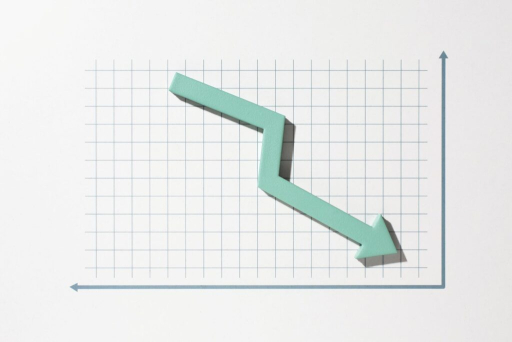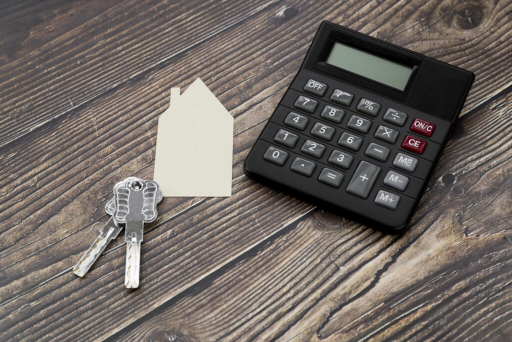
Blog: finance and real estate made simple
Articles and insights to help you navigate and grow
A Client with a Non-Bank Loan is Perceived as Risky. How to Build a Positive Credit History to Qualify for a Mortgage?

How to Define Purpose-Specific and Non-Purpose Loans
A typical example of a purpose-specific loan is a mortgage, since the funds can and must be used primarily for the purchase of real estate or land, as defined in the loan agreement.
Another possibility is leasing agreements for cars or production machinery. These contracts contain so-called VIN codes in the case of cars, or a VIN with a number/label for machinery, which simultaneously serves as collateral for the loan. The purchased item itself therefore serves as the pledged asset.
Of course, there are also purpose-specific loans without collateral. These include building savings loans or bank loans intended for financing housing needs for yourself or your close relatives.
In most cases, proof of income is required for the majority of loans. For employees, this means employer-verified income via a bank’s official form. Each bank has its own template. Proof of income can also be provided by an official bank account statement for the last three months, where the client receives their salary. For entrepreneurs, it is necessary to present the most recent tax return along with proof of tax payment. Some banks are also able to provide loans to entrepreneurs based on their account turnover.
In this article, however, we will focus on non-purpose loans.
Main Types of Non-Purpose Loans
American Mortgage
A product called an American mortgage offers a loan option without the requirement to use the money for housing. It must be secured with a lien on real estate, which gives it a better interest rate and longer repayment period compared to a consumer loan. The repayment term is capped at a maximum of 20 years, which is 10 years less than a standard mortgage. It can also be used for consolidation, paying off credit cards, or overdrafts. The maximum amount of an American mortgage is around 10,000,000 CZK (≈ 400,000 EUR), and compared to a standard mortgage, it is capped at 60–70% of the value of the pledged property.
Non-Bank Loans
Non-bank loans usually solve an unexpected event that needs to be financed immediately. They are mainly used when only a smaller amount of money is required. These institutions offer instant solutions without collateral and with simplified income verification. The risk lies in various fees and usually high interest rates, especially the APR. It is important to carefully read and uncover any loopholes in the contract.
People usually take non-bank loans when banks refuse to approve a loan due to poor payment discipline on existing loans, or even during debt enforcement (execution).
On the market, a non-bank loan can usually be arranged up to 150,000 CZK (≈ 6,000 EUR), in some cases up to 250,000 CZK (≈ 10,000 EUR). The maximum repayment term depends on the agreed conditions; so-called long-term non-bank loans can be arranged for up to 20 years.
Non-bank companies pose a problem when assessing a client’s credibility. They generally lower the client’s trustworthiness in the eyes of a bank. These offers are mostly taken up by financially less literate people or those in financial distress — debts and executions. All cooperating institutions, both banks and non-banks, share client information. Therefore, if a bank sees that a client has a non-bank loan, they are perceived as riskier.
Bank Loan
This is the direct opposite of the non-bank loan mentioned above. It refers to loans provided by banking institutions. When applying, it is necessary to provide proof of regular income. The main advantage lies in the fairness of the conditions — banks are supervised by the Czech National Bank, and at the same time, the approval process is usually stricter than with non-bank entities. It is necessary to distinguish between personal and business loans, as each serves different needs and approval criteria.
The repayment period depends on several factors, with the market standard being 10 years. The maximum amount is set at 2,500,000 CZK (≈ 100,000 EUR) for higher-income clients. Regular citizens can usually apply for up to 1,500,000 CZK (≈ 60,000 EUR).
In banking, a simple rule applies: if a person has no credit history, they represent a greater risk than someone who has already successfully repaid loans. Another plus when applying is having a credit card or overdraft limit on the account — and not exceeding it. People without credit history, usually young clients or foreigners, can apply for a non-purpose loan of 150,000 CZK to 200,000 CZK (≈ 6,000–8,000 EUR) for their first loan.
Therefore, it is advisable to use a credit card within the interest-free period, which will allow you to qualify for a higher loan amount later — often 300,000 CZK (≈ 12,000 EUR) or more. However, if you do not understand how to use a credit card effectively, it is better to avoid it, as it can put you in an unpleasant financial situation.
Cooperative Loan
This is a form of borrowing money from a housing cooperative. There are two types of such loans. The first is used when buying real estate if the client cannot obtain a mortgage. The cooperative buys the apartment on your behalf, and you then gradually repay the cooperative. Only after the full repayment of the loan is the property transferred to you as the owner.
The second option is for current apartment owners who need a loan for any purpose. During approval, no proof of regular income is required.
Loan Options Without Proof of Income
There are exceptions, for example in cooperative loans, where regular income does not need to be proven. A loan can also be obtained in the form of a pre-approved loan limit, provided the client applies at the bank where their salary is regularly deposited. These limits usually appear on accounts after 3 to 6 months of turnover. Only a few banks offer this option. The bank sets these limits monthly and does not guarantee that the offer will appear in subsequent months.
The last option is financing through loan consolidation, which a bank may provide only if the new repayment amount is lower than the original one.
Final Note
We would be happy to help you choose the most suitable type of loan to finance your needs and goals.
Note: All CZK amounts in this article were converted to EUR at a fixed exchange rate of 25 CZK = 1 EUR.
Stone & belter blog
Similar articles
Category















